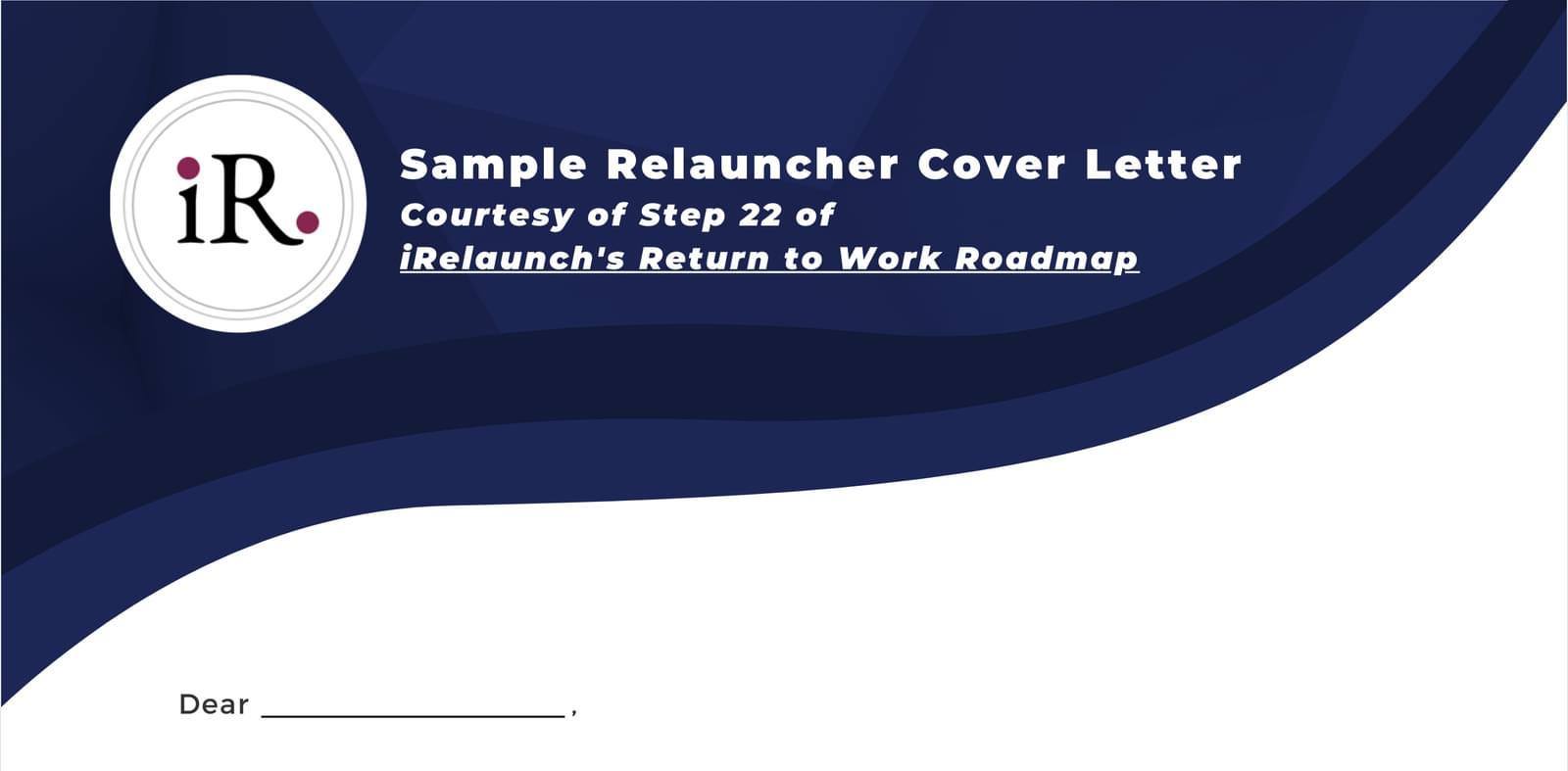I’ve been a career coach for quite some time and I’ve worked with clients on a wide variety of topics ranging from the mundane (How should I format my resume?) to the exotic (What skills did I gain from my breast-feeding consultancy?). However, one topic that continually vexes clients is the cover letter. It’s not as well-known as the resume and it’s less public than a LinkedIn profile, as a result job searchers are often intimidated by cover letters. Consequently, they have many questions. Here are three common cover letter questions with answers (Spoiler - #3 is just for relaunchers).
Q: Should I write a cover letter?
This is far and away the most common question I get. So many employers create job postings and require a resume, but make a cover letter optional. When a cover letter is optional, is it really optional? And if it’s really optional, should I write one?
A: Yes – Write a cover letter when:
- A cover letter is explicitly requested
- A cover letter is not requested, but also not expressly prohibited
Taking the time to write a cover letter shows interest in the position and a willingness to take the extra step. When a manager is deciding between candidates, the one that gets the offer is the one that’s already gone above and beyond.
A: No – There are times when a cover letter won’t help your candidacy.
- Don’t write a cover letter when the posting says not to do so.
- Don’t write a cover letter when the application site doesn’t provide opportunity to submit one.
If the posting either explicitly or implicitly says not to include a cover letter, don’t do it. If you submit a cover letter in this scenario - at best, your effort gets ignored; at worst, you piss off someone in the hiring chain.
Q: What’s the difference between a resume, a LinkedIn profile and a cover letter?
Each of these job searching tools plays a different role while cumulatively shaping your candidacy. While the information you convey in each will likely overlap, the language used and the details presented should not be copied verbatim.
- Resume – Resumes are backward-looking. They highlight your tasks and responsibilities, skills and competencies and notable achievements all in the context of prior experiences. Due to space constraints, your resume is forced to provide a high-level view.
- LinkedIn profile – If your resume is a self-portrait, your LinkedIn profile is a three-dimensional sculpture. You can show your many sides – your prior accomplishments, your future ambitions and your side hustle interests. The public nature of LinkedIn plus the lack of a length restriction means you can fully show all facets of your brand.
- Cover letter – The beauty of a cover letter is that it is the ultimate customization tool. The content doesn’t follow strict guidelines like a resume. Meaning, a short-lived project that may not be appropriate for a resume can appropriately be highlighted in a cover letter. Additionally, your LinkedIn profile will include all of your skills, whereas you can use a cover letter to focus attention on your most relevant skills for a particular position.
Do I mention my career break in a cover letter?
Yes, you should mention your career break. The cover letter is your best opportunity to both discuss the break and show how it relates to your candidacy for a specific role. Perhaps it was during the break that you decided to go in a new career direction. Or maybe you discovered new talents that broaden your skill set. Often, the break can be positioned as a time of reflection which lead to an understanding that this is the right role.
In talking with clients, I’ve learned, this question actually underscores two concerns:
- Overwhelming employers
- Q: “It’s on my resume and it’s in my LI profile, is there anything to be gained from including my break in a cover letter? A: Your break is a part of your brand. To exclude it from your cover letter would invite confusion amongst those assessing your candidacy.
- Striking an appropriate balance
- Q: “What do I prioritize – explaining my break or sharing pertinent skills and experiences?” A: Your cover letter is a bespoke document that is written to tell your story for a specific job. The priority should be amplifying whatever best shows you as a perfect fit.





